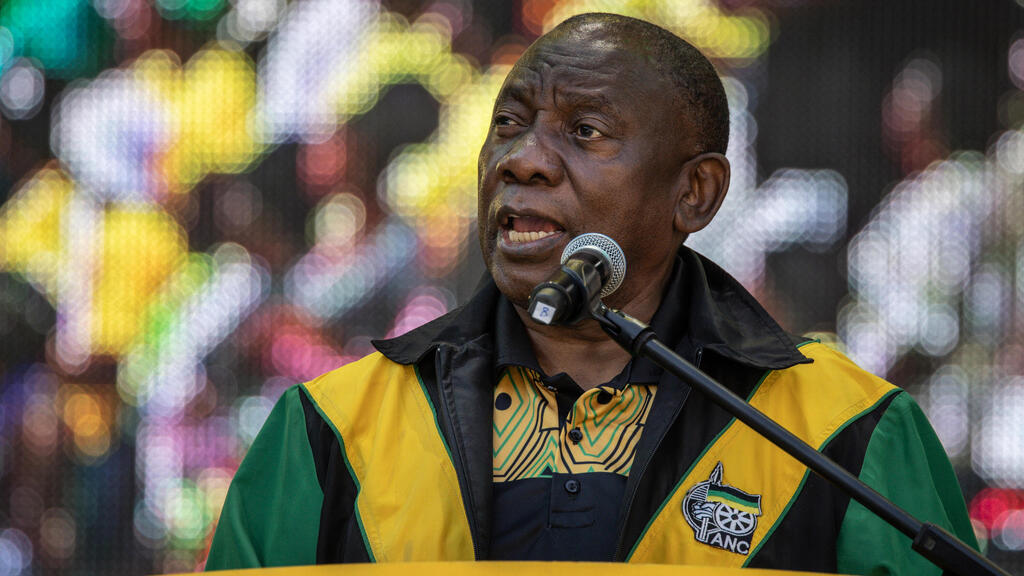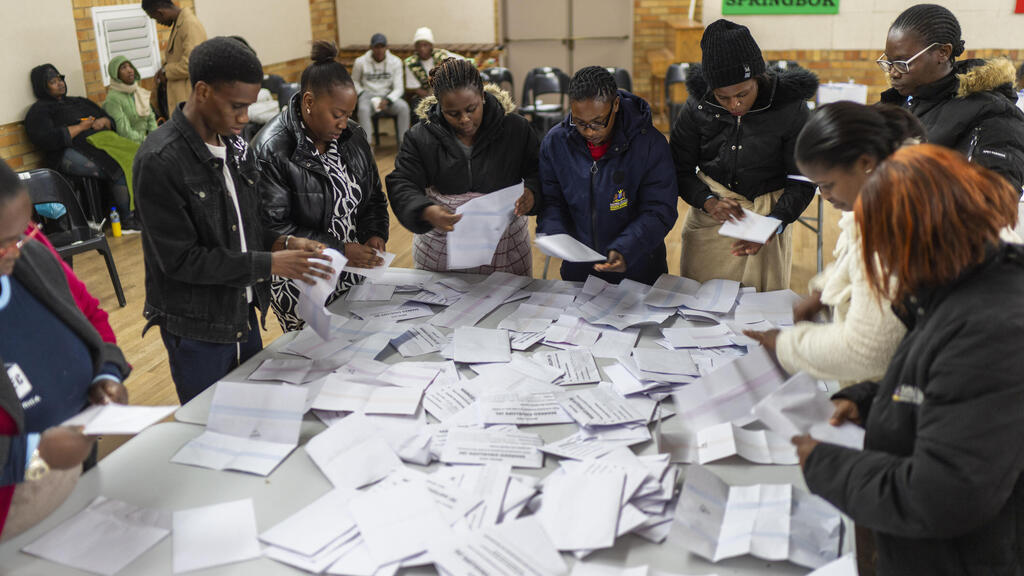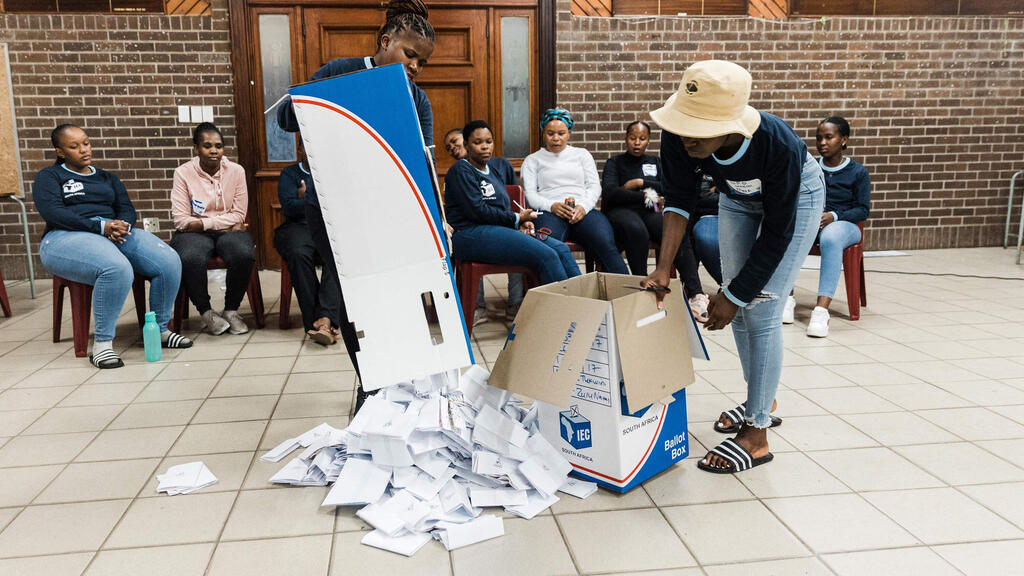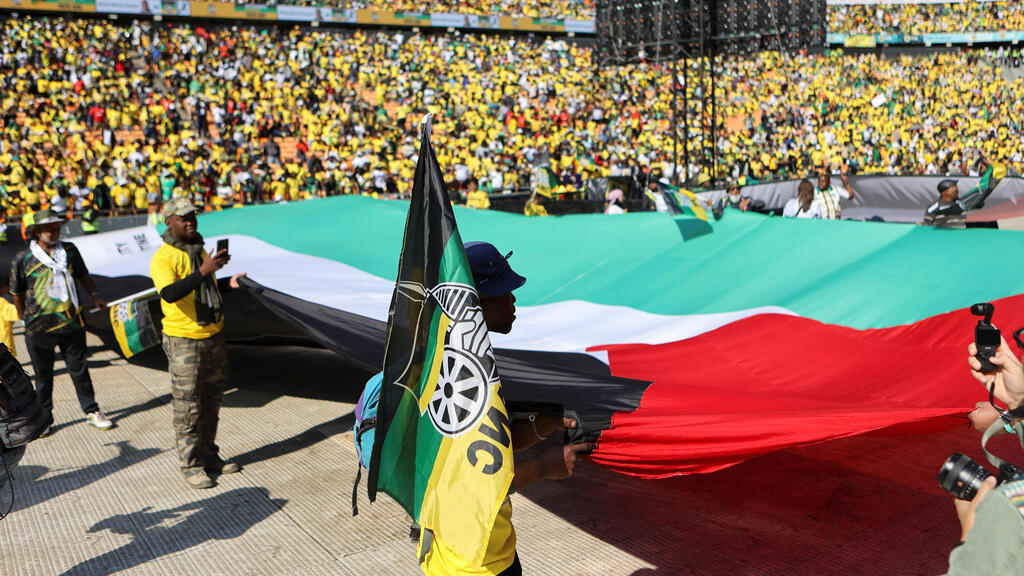Partial results in South Africa’s national election put the long-ruling African National Congress (ANC) party at well below 50% of the vote as counting continued Thursday, and it could be on the brink of losing its majority for the first time since sweeping to power under Nelson Mandela in 1994.
That would be a momentous change for South Africa, where the ANC has been dominant for all 30 years of its young democracy, and the only governing party many have known.
The ANC's government recently filed a complaint against Israel at the International Court of Justice (ICJ) in The Hague, demanding an end to the war in Gaza and accusing Israel of committing genocide against Palestinians.
This steadfast support for the Palestinians was also evident at a massive election rally held in Johannesburg this week, where participants carried a large Palestinian flag. Party critics, both in Israel and across the world, argue that its focus on the Israeli-Palestinian conflict is a way to distract the public from its domestic failuresIf it fails to secure a majority when the vote count is completed, it may have to form a coalition to remain in power, and would also need support from other parties to reelect President Cyril Ramaphosa for a second term.
With results in from 29.5% of polling stations, the ANC's share of the vote in Wednesday's election stood at 42.5%. It won 57.5% of votes in the previous election in 2019, marking a drop of more than 15%, which would be a stunning result.
“I think we are seeing a massive change in South African politics,” Susan Booysen, a political analyst and professor emeritus at the University of the Witwatersrand in Johannesburg, said on national broadcaster SABC TV.
The partial results released by the electoral commission showed the pro-business Democratic Alliance (DA) with 25.1%, and the Marxist Economic Freedom Fighters (EFF) party with 9%.
The DA has vowed to oust the ANC, though its leader John Steenhuisen has not ruled out a partnership if it would prevent what he has called a "doomsday coalition" with the ANC bringing the EFF or MK into government.
uMkhonto we Sizwe (MK), a new party led by former president Jacob Zuma, was at 8.6% and eating into ANC support, particularly in KwaZulu-Natal - Zuma's home province and a traditional stronghold of the ruling party.
If current trends continue, the ANC would likely struggle to cobble together a majority through alliances with small parties, raising speculation over which of its big rivals it might tie up with.
Investors and the business community have voiced concern over the prospect of a coalition with the EFF, which is calling for the seizure of white-owned land and the nationalization of mines and banks, or with Zuma's MK.
Zuma was forced to quit as president in 2018 after a string of scandals and has since thrown his weight behind MK, named after the ANC's armed wing from the apartheid era.
By law, the electoral commission has seven days to declare the final results, although in the past, they were announced, sooner.
The new parliament must convene within 14 days of final results being declared and its first act must be to elect the nation's president.
South Africans vote for parties and not directly for their president in national elections. Those parties then get seats in Parliament according to their share of the vote and lawmakers elect the president. The ANC has always had a clear parliamentary majority since 1994, so the president has always been from the ANC.
That process of electing a president wouldn’t be so simple if the ANC lost its majority.
The electoral commission predicted a high turnout and that was reflected in Wednesday’s scenes across the nation, as South Africans lined up into the night to make their choice. The long, snaking lines of voters in cities, towns and rural fields revived memories of the definitive election of 1994 that changed a country.
While polls officially closed at 9 p.m., voting continued for hours after that in many places as officials noted a late surge of ballots being cast in major cities like Johannesburg and Cape Town. The electoral commission said the last votes were cast at around 3 a.m. The rules say that anyone lining up at a voting station by the closing time must be allowed to vote.
The determination of South Africans to stand out in the chilly winter weather into the middle of the night suggested millions had embraced how consequential this election might be.





